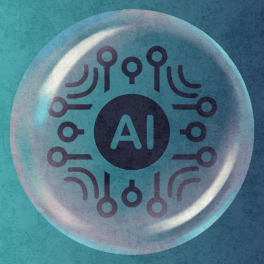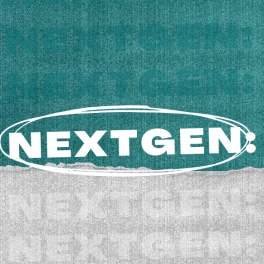
If you are active in online spaces like Twitter, Facebook and Instagram, you must have probably come across this seemingly new term. To begin with, Web 3.0 is simply the new generation of web that we are moving to. Currently, most development and deployment happens in Web 2.0. Web 3.0 leverages the power of blockchain and open source technologies to operate and increase user satisfaction. Blockchain technology encompasses technologies like Bitcoin and other cryptocurrencies and also NFTs (Non-Fungible Tokens).
To fully understand Web 3, we have to go back to where it all started. The first version of the internet that was publicly available for use was the World Wide Web which was also referred to as Web 1.0. It was largely made up of static (non-moving) web pages which were connected together by hyperlinks. This version was used in the early 90s.
After that, Web 2.0 came into being. It was the era of the internet as a platform. We witnessed the rise of e-commerce services like Amazon and eBay and social media sites like Facebook, Tumblr and Twitter. People were now able to interact with each other and publish content of their own on social media sites. The advent of smartphones and cloud computing accelerated all these new developments.
Web 2.0 came with its fair share of challenges for internet users. Internet users who use “free” services from big tech giants like Amazon, Google, Meta or Microsoft, were required to surrender their personal data in order to use their services. This didn’t sit well with some of the internet users. Shopping pages and social media pages collected information about their preferences and the way they used these services, which was then sold to third parties and used to run targeted ads.
The term Web3 was coined initially by Gavin Wood, one of the founders of Ethereum cryptocurrency as Web 3.0 in 2014. Since then, it has become a household name for anything that has to do with the next generation of the internet being a decentralized digital entity.
Wood and other proponents of the Web 3.0 concept argue that Web 2.0 has been captured by big tech companies and, in turn, indebted to regulators who may or may not be efficient in maintaining public trust in the internet or data security. They claim that the current web structure requires trust in institutions that we can’t hold responsible.
Supporters of Web 3.0 envision a state where Web 3.0 is an internet that does not require us to hand over personal information to companies like Google or Meta in order to use their services. The web would be powered by blockchain technology and Artificial Intelligence, with all the information published on the public ledger of the blockchain.
Similar to how cryptocurrency works, everything would have to be verified by the network before being accepted. Online applications would theoretically let people exchange information and currency without a middleman. A Web 3.0 internet would also be permissionless, which means anyone can use it without necessarily generating access credentials from a provider,
Instead of being hosted on servers as it is now, the data that makes up the internet would be stored on a network. Any changes to or movement of the data would be captured on the blockchain, establishing a record that would be verified by the entire network. In practice, this would block bad actors from misusing data while establishing a clear record of where it’s going.
On paper, that would grant more people access to the internet than before, and AI would be deployed to root out bots and click-farm websites. A good example of a Web 3.0 application can be a peer-to-peer (P2P) payment application that works on a blockchain. Instead of using a bank, people would pay for goods or services using a decentralized application (Dapp) made specifically for payments. Before a transaction is finalized, it would have been verified by the network and then recorded into the blockchain's digital ledger. A payment system like this could potentially benefit people who can’t open bank accounts, don't have access to them or are banned from accessing financial services by large payment providers.
Web 3.0 is mainly theoretical and has a very steep learning curve for those who may be interested in exploring it. Anyone who wishes to educate themselves has to first learn about cryptocurrency and blockchain technologies which are the biggest drivers of Web 3.0.
Web 3.0 also comes with its fair of challenges like privacy, scamming, censorship and anonymity. If hypothetically the entire internet runs on Web 3.0 blockchain architecture, and everything is indelibly written on the blockchain, then nothing would be anonymous at all. That may sound like sweet music for some, but at the same time, it may sound like torture for those who need to remain anonymous for the sake of their safety.
If no one could be blocked from the internet, it would be very egalitarian in nature. The spread of harmful misinformation and hate speech on the internet would need to be controlled in some way. Since the internet, we have now is already pretty ineffective at doing so, it's difficult to conclude if Web 3.0 would be effective at controlling those negative aspects or not.
Support Young Creators Like This One!
VoiceBox is a platform built to help young creators thrive. We believe that sharing thoughtful, high-quality content deserves pay even if your audience isn’t 100,000 strong.
But here's the thing: while you enjoy free content, our young contributors from all over the world are fairly compensated for their work. To keep this up, we need your help.
Will you join our community of supporters?
Your donation, no matter the size, makes a real difference. It allows us to:
- Compensate young creators for their work
- Maintain a safe, ad-free environment
- Continue providing high-quality, free content, including research reports and insights into youth issues
- Highlight youth voices and unique perspectives from cultures around the world
Your generosity fuels our mission! By supporting VoiceBox, you are directly supporting young people and showing that you value what they have to say.





